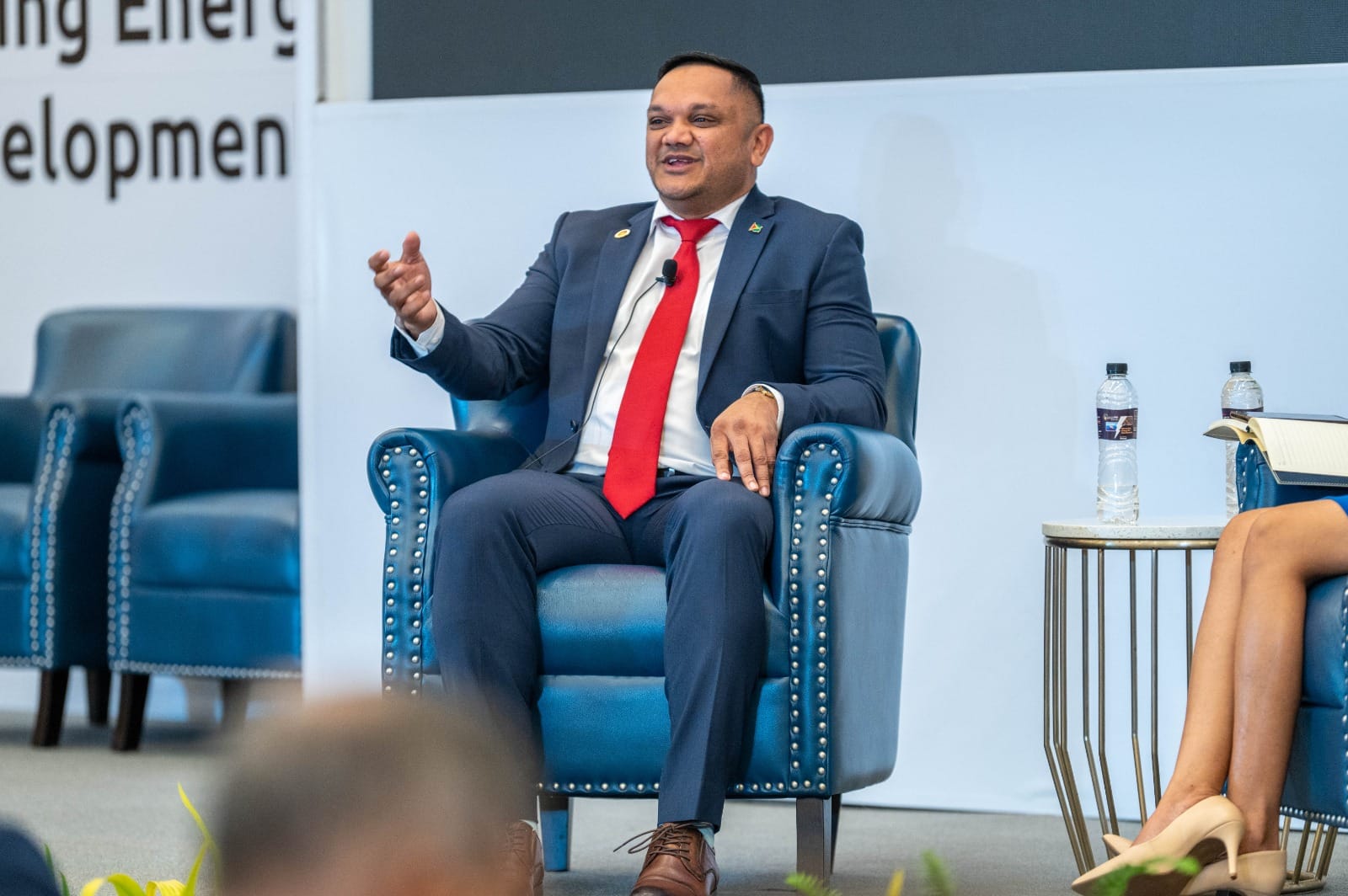Guyana Minister of Natural Resources, Vickram Bharrat, said that small developing countries with good environmental credentials deserve to be the last producers of their oil resources, even beyond 2050.
Mr. Bharrat made these comments during a panel at the International Energy Conference last week, noting that in his mind, there will still be a small demand for petroleum resources.
The world has begun its transition to renewable sources of energy. Global warming and changing climate have laid bare the need for this transition. In 2021, the International Energy Agency (IEA) released a landmark report calling for there to be no new oil and gas developments beyond those sanctioned in that year. The agency said that this is part of a scenario needed to put the world on a path to net zero emissions by 2050.
Mr. Bharrat said, “At some point in time when the demand drops… we strongly believe that fossil [fuels] will not disappear completely. But the big question is – who will be able to supply that small demand that will remain even beyond 2050?”
He posited that the last producers can be Guyana, Suriname, Trinidad and Tobago, and African countries that are only recently making petroleum discoveries.
The developed countries, he said, have been producing for a very long time and have used these resources to develop their countries and to provide better lives for their people. Compounding this, however, is the fact that this level of development has come at a great cost, as emissions associated with the extraction and utilisation of fossil fuels have contributed significantly to global warming.
On that note, Mr. Bharrat noted that the last producers must be the developing countries which have demonstrated excellent environmental credentials. In Guyana’s case, Bharrat noted that 86% of Guyana’s land mass is covered in forests, and the country boasts one of the lowest deforestation rates in the world.
Guyana is the first country in the world to be issued jurisdictional carbon credits. The Architecture for REDD+ Transactions (ART) issued the world’s first TREES credits to Guyana in December.
Mr. Bharrat said Guyana is working on cutting its emissions even further, by conducting an energy transition. The country is pursuing a Gas-to-Energy project, which will switch out heavy fuel oil with natural gas as the main source of power generation. This is expected to cut emissions by more than 50%. The project is also expected to be the transition fuel for Guyana as it gathers renewable energy projects.



